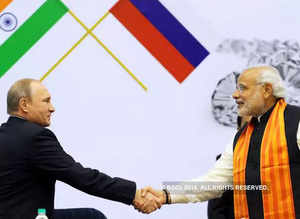President Ram Nath Kovind will inaugurate the International Gita Mahotsav in Kurukshetra, Haryana, on November 25. He will also participate in Gita Yajna and Gita Poojan ceremonies at Brahma Sarovar.
The mahotsav which will conclude on December 3 will have Mauritius as partner country and Uttar Pradesh as partner state. According to Haryana Chief Minister Manohar Lal Khattar , the President would also inaugurate an international seminar on Gita at the Kurukshetra University campus on the same day.
“About 25-30 lakh people are likely to participate in the Mahotsav this year as against 20 lakh last year,” he said. Khattar said that people from 35 countries participated in Gita Mahotsav last year. This year, we are expecting more people.
The valedictory session of the three-day seminar would be held at Brahma Sarovar as “Sant Sammelan” on November 27 in which “many renowned saints and seers from all over the world wouldwill participate. ens

Indonesia raised its warning for Bali`s Mount Agung volcano to the top level four alert on Monday, closed the holiday island`s airport and told residents near the summit to immediately evacuate, warning of the “imminent” risk of a larger eruption.
Bali`s airport was closed for 24 hours, disrupting 445 flights and some 59,000 passengers, due to the eruption warning and the presence of volcanic ash from Agung.
TV footage showed cold lava flows (lahar) at a number of locations on the mountainside. Lahar carrying mud and large boulders can destroy houses, bridges and roads in its path.
“Plumes of smoke are occasionally accompanied by explosive eruptions and the sound of weak blasts that can be heard up to 12 km (7 miles) from the peak,” the Disaster Mitigation Agency (BNPB) said in a statement.
“The potential for a larger eruption is imminent,” it said, referring to the visibility of the glow from magma at Agung`s summit overnight.
Residents were warned to “immediately evacuate” a danger zone that circles Agung in a radius of 8-10 km (5-6 miles).
Agung rises majestically over eastern Bali to a height of just over 3,000 metres (9,800 feet). Agung`s last eruption in 1963 left more than 1,000 people dead and razed several villages.
“I`m not worried (but) my friends in Russia are a little bit worried,” said a Russian tourist, who only wanted to be identified as Dmitry, at an observation post in Rendang in Bali`s east.
Bali, famous for its surf, beaches and temples, attracted nearly 5 million visitors last year, and its international airport serves as a transport hub for the chain of islands in Indonesia`s eastern archipelago.
Tourism business has slumped in Bali since September when Agung`s volcanic tremors began to increase.
“In anticipation of the possibility and imminent risk of disaster, PVMBG (the Volcanology and Geological Disaster Mitigation Centre) raised Mount Agung alert level from three to four,” it said in a statement.
5. India and Russia sign comprehensive anti-terror pact.

India and Russia on Monday agreed to help each other in combating terrorism as the two strategic partners signed a key agreement, asserting that there are no good or bad terrorists and the menace should be fought jointly.
The agreement between the two countries for cooperation in tackling all forms of terrorism was signed by home minister Rajnath Singh and Russia`s interior minister Vladimir Kolokoltsev here after they held wide-ranging talks.
The ministers underlined that cooperation in the field of security is an important aspect of this bilateral relationship further strengthen cooperation to combat terrorism, extremism and radicalism, a statement issued by the Indian embassy said.
They agreed that terrorism must be fought unitedly and there were no good or bad terrorists, it said.
"The new agreement between India`s MHA and Russia`s interior ministry will replace the October 1993 agreement between both the countries. This agreement will help in expanding and deepening cooperation on issues related to internal security," Singh tweeted after signing the pact.
The Indian embassy statement said the two leaders agreed to cooperate in combating new challenges, enhance exchange of information, cooperate in building a data base and in training of police and investigative agencies.
Indian and Russian representatives also signed the joint action plan for countering the threat posed by narcotics and the agreement will provide legal framework for bilateral cooperation in this field.
The pact was signed by Indian ambassador to Russia Pankaj Saran and deputy minister for internal affairs of the Russian Federation Igor Zubov in presence of Singh and Kolokoltsev.
The agreement on internal security is an updated and more comprehensive agreement on cooperation on security between the MHA and the Russian ministry of interior.
6. President of India Inaugurates the International Ambedkar Conclave.

The President of India, Shri Ram Nath Kovind, inaugurated the International Ambedkar Conclave, organised by the Forum of SC and ST Legislators and Parliamentarians, today (November 27, 2017) in New Delhi.
Speaking on the occasion, the President noted with appreciation that Dr B.R. Ambedkar had attained senior public positions and acclaim on the basis of his extraordinary educational achievements, despite facing conditions of deprivation and inequality. Dr Ambedkar made unique contributions towards building a modern society in India, emphasising the struggle for social rights in public life.
The President said that the Constitution, of which Dr Ambedkar is considered the Chief Architect, has given our democracy a strong framework. And yet it is also flexible so that it can be amended according to the needs of the times. The Constitution provides us the way to fulfil hopes of all sections of people in the worlds largest democracy.
The President emphasised the necessity of working within the purview of the Constitution and the rule of law. The President noted that Dr Ambedkar had said that the basis of the success of any constitution is not just its text. The success of the Constitution depends on the people and political parties, which are used by the people as instruments for the achievement of their aspirations and priorities.